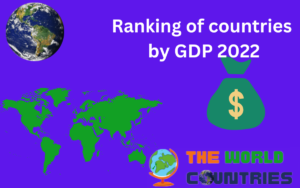
As Africa’s economies expand, so too does its alcoholic drinks market, with a projected compound annual growth rate (CAGR) of 12.29% from 2024 to 2028, signalling a significant boost in countries by alcohol consumption. Notably, in 2024, the market’s value is expected to hit a substantial US$101.0 billion, with beer dominating as the preferred choice, followed by spirits, wine, and other categories. This growth is partly influenced by strategic moves from companies like Diageo, who are successfully enticing consumers towards safer, branded options, amidst a market where around one-third of alcohol remains unrecorded.
However, the pattern of alcohol consumption in this region is not without its challenges. The impact of the COVID-19 pandemic was stark, altering buying and consumption habits, particularly with a shift towards social media as a key marketing platform. Recorded and unrecorded alcohol consumption also interplays with significant health concerns, such as its role in contributing to disease and disability in sub-Saharan countries and complicating factors in HIV management. The following analysis will delve into the top 10 African countries with the highest alcohol consumption rate, providing insights into trends, measurement methodologies, and the implications on health and society.
Alcohol and its Cultural Significance
Alcohol is one of the world’s oldest recreational substances, with its consumption levels and types varying depending on the location. Some cultures view alcohol consumption as a pleasurable experience, while others see intoxication as a sin. In Africa, virtually every society has produced one or more types of fermented drinks.
Whether it’s palm wine in coastal regions, wines made from honey or local fruits like bananas, or beers brewed from millet, sorghum, and maize, alcohol has a place in African societies. Even in Muslim societies, where intoxication is religiously prohibited, these fermented drinks, often categorized by locals as food, do not violate the Qurʾanic prohibition.
Global Alcohol Consumption Trends
In 2019, the World Health Organization (WHO) released a comprehensive report on the global status of alcohol to help countries combat the harmful use of alcohol and avoid negative health and social consequences. According to the report, the biggest consumers of alcohol are countries in Central Europe, the South Pacific, and parts of the Caribbean.
The report noted that beer and wine dominate in Europe, with most of the top consumers also being top producers, such as France and Germany. At the bottom of the consumption charts are countries like Bangladesh, Saudi Arabia, Kuwait, and other Muslim countries where intoxication is religiously prohibited.
10 African countries with the highest alcohol consumption rate
Below is a table presenting the top 10 African nations with the highest alcohol consumption per capita.
| Country | Alcohol Consumption per capita |
|---|---|
| Seychelles | 9.48 |
| Tanzania | 7.81 |
| Eswatini | 7.68 |
| Burkina Faso | 7.28 |
| South Africa | 7.21 |
| Uganda | 6.82 |
| Gabon | 6.47 |
| Rwanda | 6.35 |
| Equatorial Guinea | 6.11 |
| Botswana | 5.98 |
Understanding Total Alcohol Per Capita Consumption Estimation Methods
Total alcohol per capita consumption (APC) is a measure encompassing both recorded and unrecorded alcohol consumption per person aged 15 years and older within a calendar year, adjusted for tourist consumption. The calculation includes the sum of recorded alcohol consumption, based on official statistics or industry data, and an estimate of unrecorded alcohol consumption, which includes untaxed or illicitly obtained alcohol. Tourist consumption is factored in, accounting for both tourists visiting a country and residents consuming alcohol while abroad.
Recorded alcohol consumption is derived from official statistics or industry data on production, import, export, and sales. When such data are lacking, alternative sources like the FAOSTAT or industry statistics are utilized. Unrecorded alcohol consumption, which includes illicit or untaxed alcohol, is estimated through various methods, such as expert opinion or empirical investigations. Tourist consumption is calculated based on tourist numbers, average stay duration, and alcohol consumption habits.
The estimation method involves a three-year average of recorded and unrecorded alcohol consumption, adjusted for tourist consumption. Linear regression models are employed for projecting missing data, while country-level proportions of unrecorded alcohol consumption are estimated using regression analysis. Covariates such as urbanization, migration rates, and GDP are considered in the estimation process, with model fit assessed through out-of-sample predictions and plausibility checks.
The unit of measure for total APC is in litres of pure alcohol per person aged 15 years and older per year. This comprehensive approach provides insights into alcohol consumption patterns within populations, incorporating both recorded and unrecorded sources, as well as the impact of tourism on alcohol consumption.
The Rising Alcohol Market in Africa
Despite Africa hosting 16% of the world’s population, it only consumes 5% of the world’s beverage alcohol. This low per capita consumption hints at considerable potential. The continent’s hot climate is expected to increase the demand for beer, and major brewers are investing in the future.
The Illicit Alcohol Trade in Africa
The illicit spirits segment retains a strong presence in Africa, mainly due to its availability, affordability, and lack of government regulations. This not only results in considerable health risks for the consumers but also billions of dollars in losses for the respective governments.
Conclusion
Alcohol consumption in Africa is a complex issue, intertwined with cultural traditions, economic factors, and government regulations. While some African countries consume a great deal of alcohol, others consume very little due to religious or cultural beliefs. Understanding the dynamics of alcohol consumption in Africa can provide valuable insights into the continent’s diverse cultures and lifestyles.
Please remember that excessive alcohol consumption can have serious health consequences. Always drink responsibly and seek help if you believe you or someone you know is struggling with alcohol addiction.





